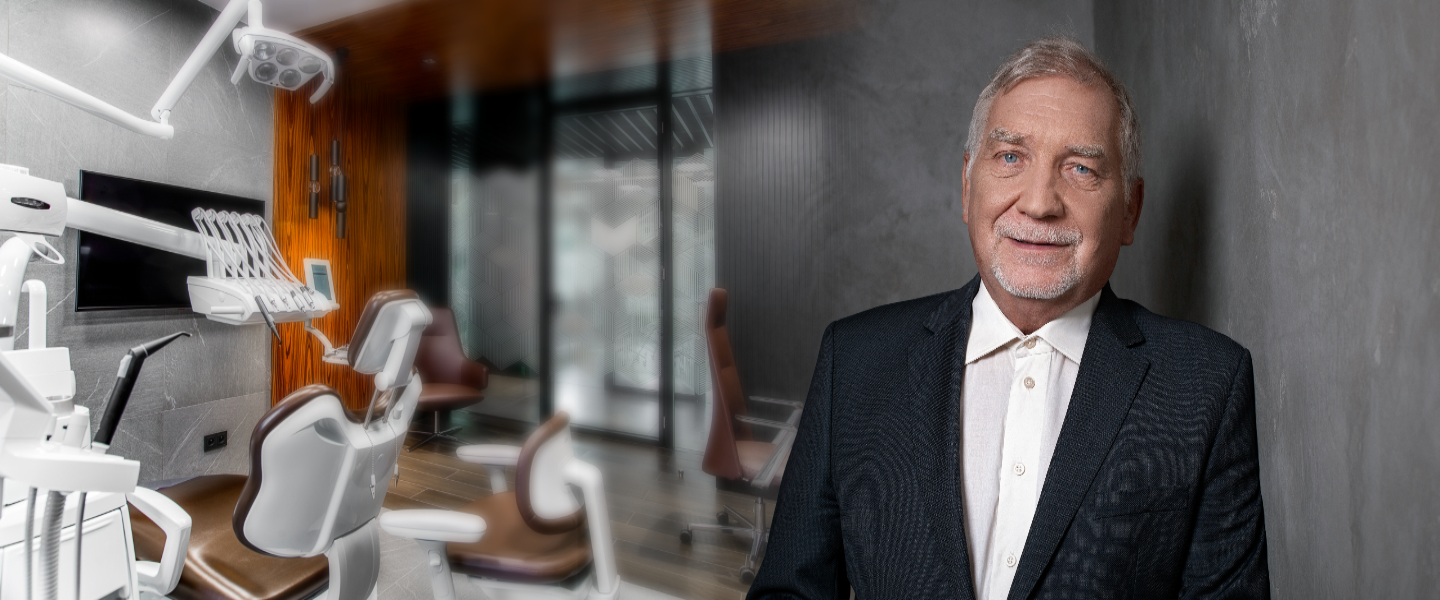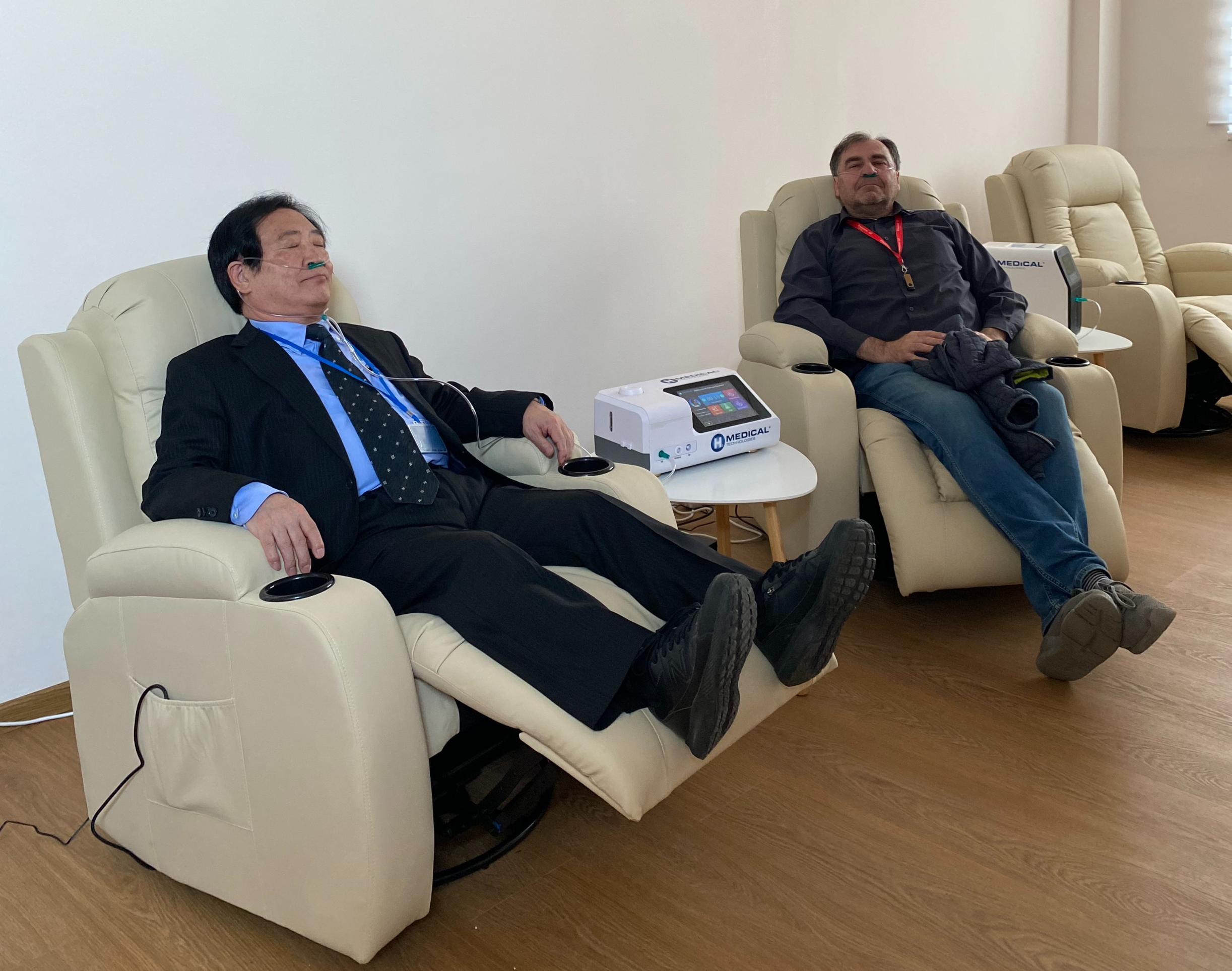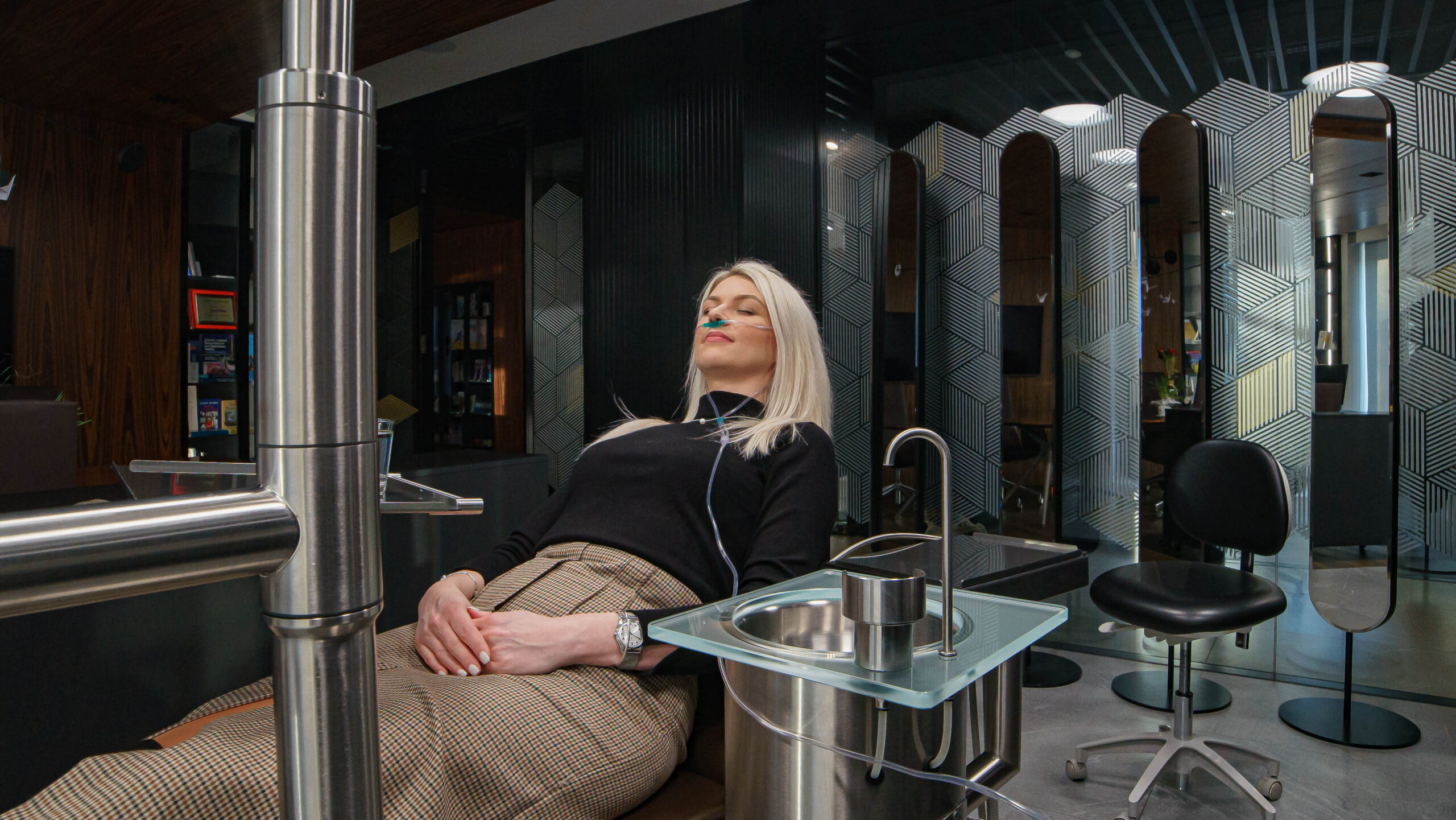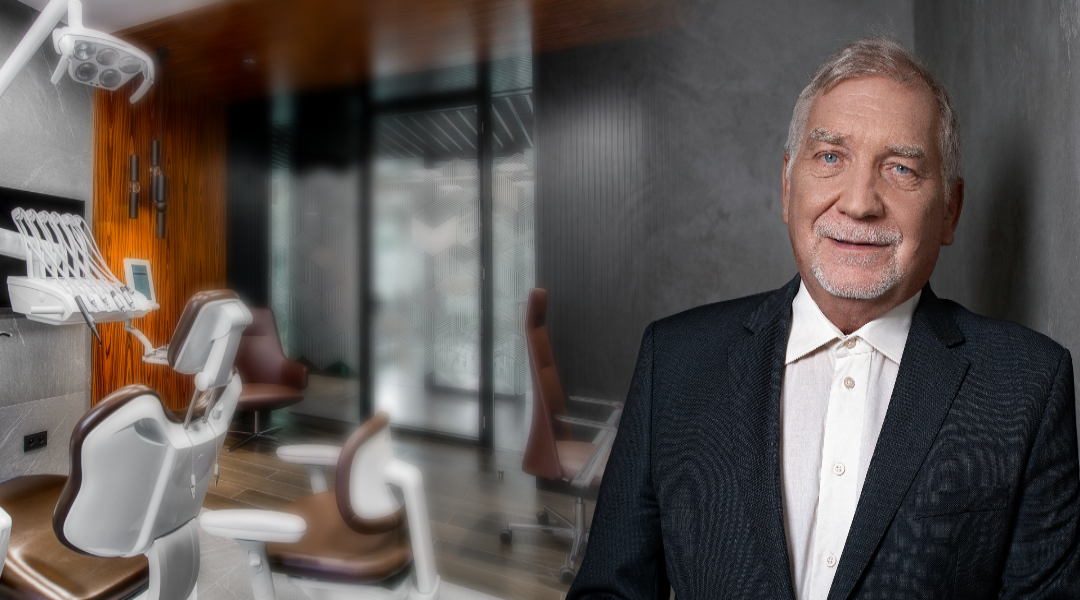
Experienced Dentist Dr Lubomír Beran: “Hydrogen-Based Therapies Truly Make a Difference”
Dr Lubomír Beran, an experienced dental surgeon and clinical advisor to the private AJNA dental clinic and emergency service in Ostrava, welcomes every innovation in his field with open arms. When he first learnt about the effects of molecular hydrogen on the human body, he didn’t hesitate to try it himself—and soon after began applying it in patient care at his clinic. His enthusiasm is unmistakable. “I can see and feel for myself that these therapies are outstanding,” he says.
With over 40 years of experience in oral surgery and implantology, Dr Beran currently runs a successful dental and aesthetic centre in Velký Třebešov. Known for his professional and compassionate approach, the 72-year-old dentist remains as passionate about dentistry as ever. “People ask why I haven’t retired yet—why I’m not relaxing somewhere,” he laughs. “I tell them, are you mad? I’m only halfway through my life! I’m planning to live to 150! And I know I will! I keep discovering new things I want to do, and that keeps me going. Telling people this gives me energy—it’s what drives me forward, even though my body is already worn out.”

Ostrava’s Dental Reality: A Neglected Smile
When Dr Beran began treating patients in Ostrava, he was taken aback by the poor state of many people’s teeth. Often, he would guess a patient’s age to be 20 years older than their medical records suggested—simply by looking at their oral condition. “The most common issue is severe neglect. People only come to us when the pain becomes unbearable and they manage to save up some money. Very few arrive with just two or three minor problems—those patients bring me real joy.”
Unfortunately, many new patients at the AJNA clinic hadn’t seen a dentist in up to seven years. Often, they only discover their previous dentist has retired or removed their medical file once the pain begins. Suddenly, urgent dental care is needed, and they’re willing to invest to relieve the pain and, ideally, save their teeth. However, as Dr Beran points out, years of neglect usually leave a devastating mark. “When we do a CT scan, what we find is often shocking. In most cases, two-thirds of the teeth have to be removed. Some can be saved, or we might find just one or two healthy teeth left—at that point, it’s not worth keeping them. So, we extract everything, provide temporary dentures, and after a healing period, we proceed with prosthetic treatment.”
Hydrogen Therapy for Recovery
It is during this post-surgical recovery phase that patients are introduced to molecular hydrogen. “If we agree to remove, say, an entire jaw, we’re left with a large wound. This is where hydrogen makes a huge difference. I’m absolutely convinced of its benefits. It significantly accelerates healing and, importantly, reduces pain. Patients tell us the very next day that they barely felt any discomfort. That’s remarkable—it’s a single application and the effect is clear.”
Dr Beran praises hydrogen-based therapies and plans to incorporate them even more widely in his practice. “I can truly feel their effectiveness. We’re actively testing them with patients. We have a dental hygienist here who’s equipped with a full range of hydrogen products. She explains everything to patients and, if they’re interested, also supplies the products. After more complex procedures—like wisdom tooth extractions—we send patients to her. They then relax for half an hour with music while inhaling molecular hydrogen,” he adds with delight.
“We’re still in the early stages, but I’m considering setting up a dedicated hydrogen therapy room for patients after treatments from all our clinics. After all, any dental procedure is stressful. Why not offer a space to relax and inhale hydrogen?” he reflects. Stress, he explains, is a key factor in the production of free radicals, and current research shows molecular hydrogen helps balance those with beneficial antioxidants. “I was introduced to hydrogen through our partner organisation at H2 Global Group, with whom we’re working on several fascinating joint projects aimed at supporting patient health more effectively. I learnt that molecular hydrogen has a significantly positive impact on the nervous system, helps rejuvenate the body, strengthens the immune system, and visibly aids in managing stress.”

The Future of Dentistry—Near and Far
Thanks to innovations like molecular hydrogen, Dr Beran believes he’ll be able to keep helping patients for another 50 years. “Modern life is incredibly hectic. People sleep poorly, eat badly, and that takes a toll on the body. Luckily, we now have people bringing forward ways to support health not just with pharmaceuticals—many of which cause side effects that require further medication—but with natural and supportive alternatives. Hydrogen is one of them.”
Dr Beran is also dedicating much of his time, alongside a team of fellow dentists, to a project aimed at opening up to 300 new dental practices across the Czech Republic—ensuring that everyone has access to their own dentist and to high-quality, insurance-covered care. He and his colleagues have also succeeded in reviving a tradition in the Jeseník region: providing schoolchildren with regular dental care directly in schools. “It was a nightmare in terms of legislation—getting all the permissions just to examine a child. But we did it, and I’m genuinely proud of that,” he concludes.
